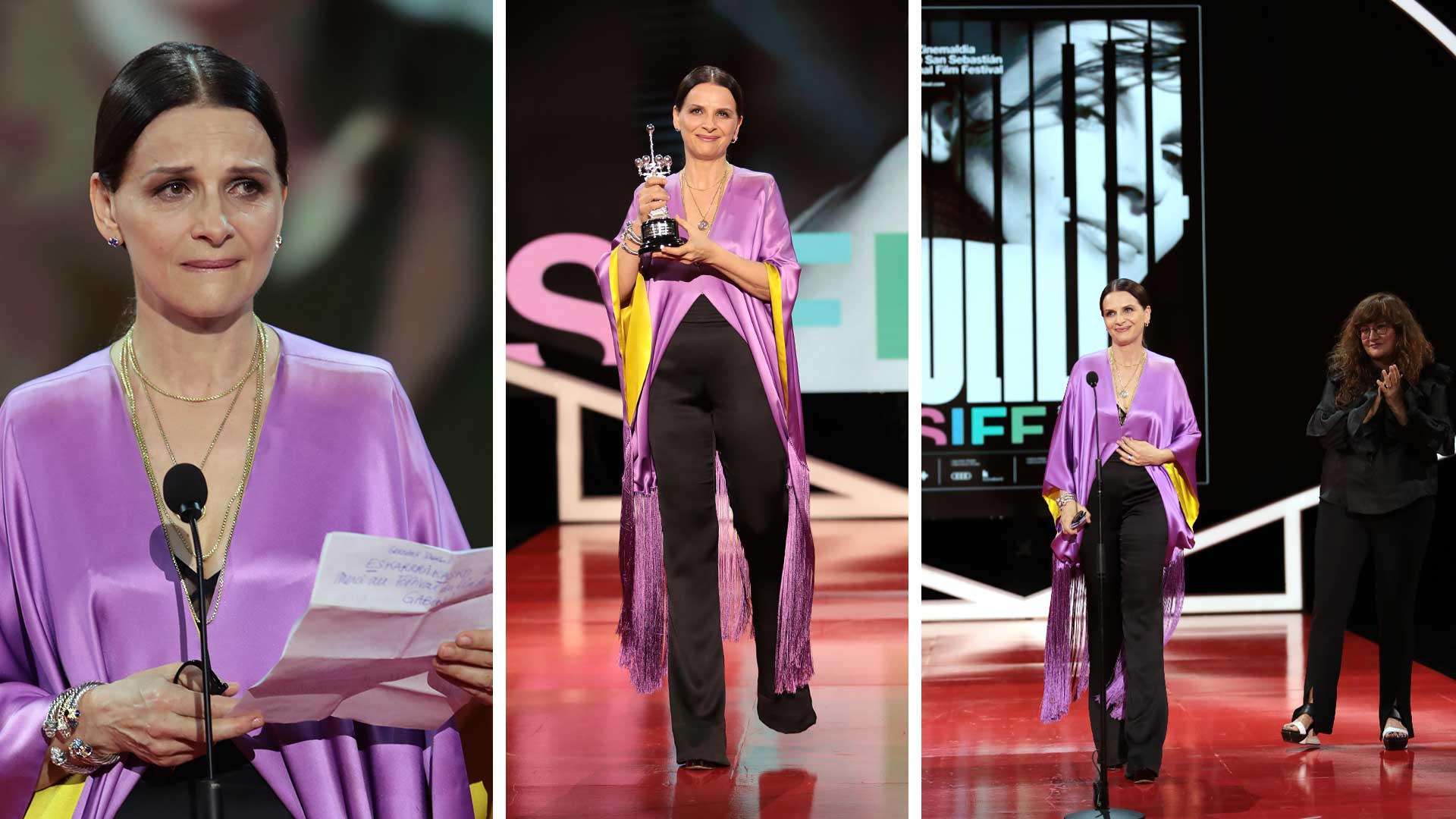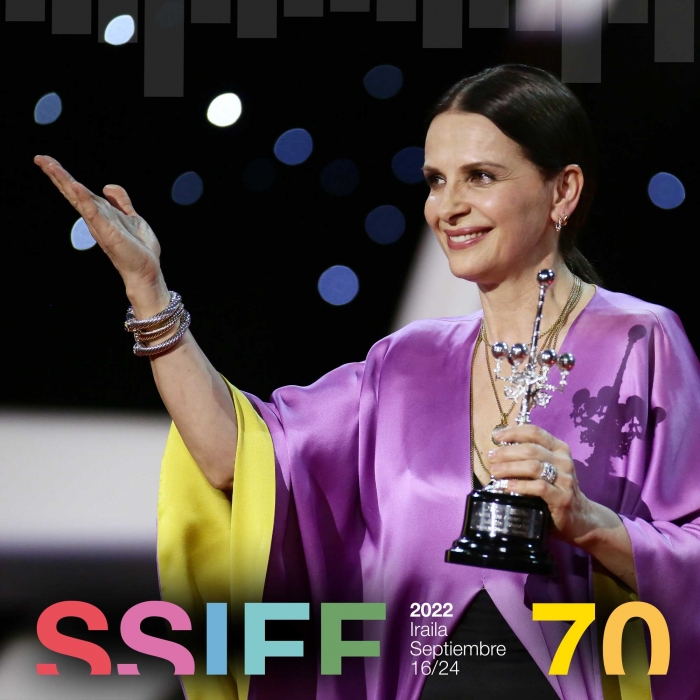Juliette Binoche received the first of the two Donostia Awards at the 70th San Sebastian Festival tonight at the Kursaal. The French actress received the Festival's highest honorary accolade from Isabel Coixet and the ceremony was followed by the screening of Avec amour et acharnement / Both Sides of The Blade, directed by Claire Denis.
In her thank you speech, Binoche recalled the members of her family and friends, her acquaintances, collaborators and work colleagues. She also expressed her gratitude to the San Sebastian Festival for showing films by moviemakers that she adores and loves. "I feel at home here, I feel that warmth and it is an honour to be here", she said, visibly moved.
"I would also like to thank my faithful travelling companion: silence. Silence is a presence. Before a take, before performing, silence is strength, that strength from which I draw emotions, sensations, and it appears with no willpower whatsoever. But without silence, there are no words. Without silence there is no spirit, and when that silence is shared with a filmmaker, with an actress or an actor, with the team of a film, then a golden thread is woven and that goes on to become a film. And there, all the meaning of my dreams of becoming an actress is personified in a living work", she stated.
Actor Eneko Sagardoy was the presenter of a gala in which he defined the honoree's filmography as "the sum of an enormous talent, a charisma that transcends the screen and a series of courageous choices that have forged her career".
For her part, Isabel Coixet, who directed Binoche in Nobody Wants the Night (2015), praised the performer before presenting her with the Donostia Award. "Working alongside her, you feel touched by a strange magic that goes beyond images, words, framing... It is true what they say about her face emanating light, but it is an incredibly generous light, a light that permeates all those who make the film with her. If I close my eyes, I feel that, although all her characters are radically different from each other, they are all touched by this extraordinary and bizarre light", she stressed.

Professional career
Juliette Binoche (Paris, 1964) made her debut with Liberty Belle (Pascal Kané, 1983), followed by titles including Je vous salue, Marie (Hail Mary, Jean-Luc Godard,1985), La vie de famille (Family Life, Jacques Doillon, Official Selection, 1985), The Unbearable Lightness of Being (Philip Kaufman, 1998), Les amants du Pont-Neuf (Lovers on the Bridge, Leos Carax, 1991) and Damage (Louis Malle, 1992).
For Trois couleurs: Bleu (Three colours: Blue, Krzysztof Kieslowski, Zabaltegi, 1994), she received the Volpi Cup in Venice and one César, for which she has received another nine nominations. The English Patient (1996) earned her the Academy Award for Best Supporting Actress and Best Actress in Berlin, an accolade she also won in Cannes for Copie conforme (Certified Copy, Abbas Kiarostami, 2010). She has also worked with directors such as Jean-Paul Rappeneau (Le hussard sur le toit / The Horseman on the Roof, Official Selection out of competition, 1995), Michael Haneke (Caché / Hidden, 2005) and Olivier Assayas (L’heure d’été / Summer Hours, Perlak, 2008).
In 2002 she closed the Official Selection out of competition with Décalage horaire (Jet Lag, Danièle Thompson), returning to the selection in 2018 with Vision (Naomi Kawase) and High Life (Claire Denis, FIPRESCI Prize). In Perlak, she has shown La vérité (The Truth, Hirokazu Koreeda, 2019) and Ouistreham / Between Two Worlds (Emmanuel Carrère, City of Donostia / San Sebastian Audience Award for Best European Film, 2021). Avec amour et acharnement / Fire, directed by Claire Denis, won the Silver Shell for Best Director in Berlin.
This year Binoche is taking part in the Official Selection with Le lycéen / Winter Boy (Christophe Honoré), whose official screening she will attend tomorrow at 22:00 at the Kursaal.





